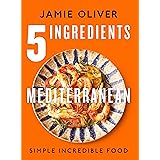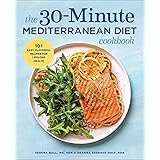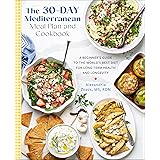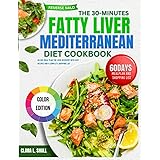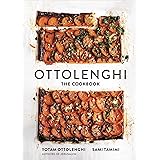Embarking on the Mediterranean Diet is not merely adopting a new eating plan; it is embracing a holistic lifestyle revered for its profound health benefits and delicious simplicity. As explored in the video above, this dietary approach stands apart from fleeting trends, offering a sustainable path to well-being. This guide delves deeper into the principles of how to start the Mediterranean Diet, providing comprehensive insights and actionable strategies. Understanding its foundations is crucial for anyone seeking to cultivate a life marked by longevity, vitality, and an unwavering appreciation for wholesome food.
The Mediterranean Diet is widely acknowledged as one of the healthiest eating patterns globally, consistently ranking high in nutritional evaluations. Its appeal stems from a balanced emphasis on fresh, unprocessed ingredients coupled with a mindful approach to eating. This isn’t about rigid rules or calorie counting; rather, it’s a framework that encourages enjoyment and connection with food. Consequently, countless individuals are drawn to its promise of improved health without sacrificing flavor or the joy of communal meals.
Understanding the Mediterranean Diet: More Than Just Food
The Mediterranean Diet is not a singular, prescriptive diet plan but a collection of traditional eating habits observed in countries bordering the Mediterranean Sea. Regions such as Greece, Italy, Spain, Morocco, and Lebanon exhibit diverse cuisines, yet share common dietary threads that contribute to their populations’ remarkable health. These shared characteristics include an abundance of plant-based foods, healthy fats, and a focus on meals prepared with fresh, local ingredients. This approach transcends mere nutrition, encompassing a lifestyle where food is celebrated and shared with purpose.
Historically, the eating patterns of these regions developed out of necessity and resourcefulness, favoring readily available produce, grains, legumes, and fish. This culinary heritage has, over centuries, demonstrated its efficacy in promoting long-term health and preventing chronic diseases. Therefore, embracing the Mediterranean Diet means tapping into a time-tested tradition of eating well. It represents a departure from modern dietary complexities, advocating for simplicity and authenticity in every meal.
Why Embrace the Mediterranean Diet for Lasting Wellness?
The compelling reasons to integrate the Mediterranean Diet into your life extend far beyond mere weight management; they encompass a comprehensive approach to health and longevity. Scientific research robustly supports its efficacy in reducing the risk of numerous chronic conditions. People adhering to this dietary pattern consistently exhibit lower incidences of heart disease, type 2 diabetes, certain cancers, and even neurodegenerative diseases like Alzheimer’s. This is largely attributable to its emphasis on anti-inflammatory and antioxidant-rich foods.
Furthermore, the Mediterranean Diet is lauded for its sustainability, a critical factor for any dietary change intended for the long term. Unlike restrictive fad diets that often lead to yo-yo dieting and feelings of deprivation, this lifestyle promotes satisfaction and abundance. It teaches individuals how to eat with intention, savoring each meal and fostering a positive relationship with food. The focus shifts from what you cannot have to the vast array of delicious, nourishing options available, making it an enjoyable and enduring dietary choice.
Key Pillars of the Mediterranean Diet: Practical Application
To effectively start the Mediterranean Diet, understanding its core principles is essential. These guidelines serve as the foundation for building a healthier, more vibrant eating pattern. Implementing these pillars gradually can facilitate a smoother transition, allowing you to adapt to new food choices and cooking methods with ease. Each principle is designed to enhance your well-being, providing both physical nourishment and culinary delight.
1. Prioritize Whole, Unprocessed Foods
The cornerstone of the Mediterranean Diet involves a radical shift away from ultra-processed foods, which are typically high in unhealthy fats, refined sugars, and artificial additives. Items like sugary drinks, packaged snacks, white breads, and processed meats are minimized or eliminated. Instead, the diet champions foods in their most natural state—ingredients your great-grandparents would instantly recognize and use. This conscious choice empowers you to nourish your body with essential nutrients, devoid of harmful synthetic compounds.
Consequently, focus on ingredients like fresh vegetables, ripe fruits, hearty legumes, and authentic whole grains. Learning to read food labels becomes an important skill, as it allows you to identify hidden sugars and undesirable chemicals. By choosing real, unprocessed foods, you inherently reduce your intake of inflammatory agents and increase your consumption of fiber, vitamins, and minerals. This fundamental principle sets the stage for all other aspects of the Mediterranean eating plan.
2. Build Meals Around Plant-Based Foods
Plants are unequivocally the superstars of the Mediterranean Diet, forming the bulk of every meal. This does not mandate a vegetarian or vegan lifestyle, but it certainly positions meat as a garnish or occasional component rather than the main event. Your plate should be vibrant with a diverse array of vegetables, fruits, beans, lentils, nuts, seeds, and whole grains. These foods are powerhouses of fiber, antioxidants, and a wide spectrum of essential vitamins and minerals, crucial for optimal health.
For instance, imagine a typical Mediterranean meal featuring a large salad bursting with leafy greens, cucumbers, tomatoes, and olives, accompanied by a generous serving of hummus and whole-grain pita bread. Incorporating a variety of colorful vegetables ensures you receive a broad spectrum of phytonutrients, which play a vital role in disease prevention. Regularly integrating legumes like chickpeas and lentils into your daily diet provides sustained energy and significant protein, making them exceptional meat alternatives.
3. Embrace Extra Virgin Olive Oil as Your Primary Fat Source
If there is one non-negotiable component of the Mediterranean Diet, it is extra virgin olive oil (EVOO). This luscious, fruit-based fat is celebrated for its rich flavor and impressive health benefits. Unlike saturated fats or highly processed vegetable oils, EVOO is packed with monounsaturated fats, particularly oleic acid, and powerful antioxidants like polyphenols. These compounds are known to reduce inflammation and protect against cardiovascular disease, making it a truly functional food.
Indeed, in many Mediterranean countries, olive oil constitutes a significant portion of daily caloric intake, with some estimates suggesting up to 40% of calories can come from this golden elixir. Use it generously in salads, as a base for dressings, drizzled over roasted vegetables, or simply for dipping crusty whole-grain bread. Its robust flavor elevates simple dishes, while its nutritional profile actively contributes to heart health and overall well-being. Choosing high-quality, cold-pressed extra virgin olive oil is paramount for maximizing these benefits.
4. Feature Legumes (Beans) Prominently
Beans and other legumes are frequently hailed as the “secret weapon” of the Mediterranean Diet due to their exceptional nutritional profile and versatility. These humble ingredients are outstanding sources of plant-based protein, dietary fiber, and a host of micronutrients like iron, folate, and magnesium. Furthermore, they are incredibly budget-friendly, offering an economical way to boost your nutritional intake. In Mediterranean homes, chickpeas, lentils, cannellini beans, and black beans are staples, often consumed almost daily.
Legumes contribute significantly to satiety, helping you feel full and satisfied for longer periods, which can aid in weight management. They can be incorporated into a myriad of dishes, from hearty stews and vibrant salads to creamy dips like hummus. By making beans a central part of your meal planning, you can substantially reduce your reliance on meat, aligning perfectly with the plant-forward philosophy of the Mediterranean Diet. Their consistent consumption has been linked to improved gut health and stable blood sugar levels.
5. Consume Meat Sparingly and Focus on Fish
While not strictly vegetarian, the Mediterranean Diet advocates for a significant reduction in meat consumption, especially red meat. Meat is not forbidden, but it is typically enjoyed in smaller portions and less frequently, perhaps a few times a month rather than daily. When meat is consumed, it is often lean poultry or used as a flavoring agent in larger, vegetable-rich dishes, such as stews or pasta. This approach contrasts sharply with Western diets, where meat often takes center stage.
In lieu of red meat, fatty fish and seafood are encouraged sources of protein, consumed several times a week. Fish like salmon, sardines, mackerel, and anchovies are prized for their high content of omega-3 fatty acids, which are crucial for heart and brain health. These omega-3s possess potent anti-inflammatory properties, offering substantial benefits to the cardiovascular system. Consequently, making the switch to more fish-based meals and less red meat is a key adaptation for those adopting this dietary pattern.
6. Boost Omega-3 Fatty Acid Intake
Omega-3 fatty acids are essential polyunsaturated fats that play a critical role in numerous bodily functions, including brain health, vision, and inflammation reduction. The Mediterranean Diet naturally emphasizes foods rich in these beneficial fats, making them a significant component of daily intake. Beyond fatty fish, other excellent sources include walnuts, flaxseeds, chia seeds, and even certain leafy green vegetables. Prioritizing these foods contributes significantly to the diet’s protective effects against chronic diseases.
For instance, incorporating a handful of walnuts into your morning yogurt or sprinkling ground flaxseed over your oatmeal are simple ways to increase your omega-3 intake. These fats are vital for maintaining the health of cell membranes throughout the body, particularly in the brain and retina. Their anti-inflammatory action helps to counteract chronic inflammation, a known contributor to conditions like heart disease, arthritis, and certain neurological disorders. Therefore, actively seeking out omega-3 rich foods is a prudent step in this dietary journey.
7. Choose True Whole Grains
Moving beyond the refined white flour products, the Mediterranean Diet champions the consumption of true whole grains. These are grains that retain all three parts of the kernel—the bran, germ, and endosperm—preserving their fiber, vitamins, and minerals. Examples include farro, oats, barley, millet, amaranth, quinoa, and whole wheat. Incorporating these grains provides sustained energy, aids digestion due to their high fiber content, and helps stabilize blood sugar levels throughout the day.
Switching from white bread and pasta to their whole-grain counterparts is a straightforward yet impactful change. These complex carbohydrates contribute to satiety and provide a steady release of glucose, preventing energy crashes. They also support a healthy gut microbiome, which is increasingly recognized for its widespread effects on overall health, including immune function and mood. Exploring ancient grains can introduce new textures and flavors to your meals, making healthy eating an adventurous and delicious experience.
8. Enjoy Whole-Fat Dairy in Moderation
Unlike many low-fat diet recommendations, the Mediterranean Diet permits and even encourages the consumption of whole-fat dairy products, though typically in moderation. Items like real Greek yogurt, full-fat cheeses (feta, halloumi), and whole milk are enjoyed for their rich flavor and nutritional density. These dairy products provide essential calcium, protein, and beneficial probiotics, particularly in fermented forms like yogurt. The healthy fats present contribute to satiety and can even support better weight control.
The key here is quality and mindful consumption. Opt for traditional, minimally processed dairy products when available. For instance, incorporating plain Greek yogurt with berries and walnuts for breakfast, as exemplified by Mark in the video, is a classic Mediterranean approach that delivers protein, healthy fats, and fiber. The probiotics in fermented dairy products are instrumental for maintaining a healthy gut microbiome, which plays a crucial role in digestion, immunity, and even mental health.
9. Red Wine or Grape Juice: An Optional Choice
For those who consume alcohol, red wine is often enjoyed in moderation within the Mediterranean cultural context, particularly in countries like Italy, Spain, and Greece. It is typically consumed with meals and is sometimes attributed to contributing to heart health due to its antioxidant content, notably resveratrol. However, it is paramount to emphasize that alcohol consumption is entirely optional and should not be started for health benefits. Its role is often more cultural and social than purely nutritional.
For individuals who do not drink alcohol, organic red grape juice offers many of the same antioxidant benefits without the alcohol. Furthermore, it is important to acknowledge that in Muslim-majority Mediterranean regions, wine is not part of the traditional diet, yet the health benefits of the Mediterranean eating pattern persist. Therefore, this aspect of the diet is a personal choice and by no means a mandatory component for achieving its numerous health advantages. Focus on the other nine principles for substantial benefits.
10. Choose Fruit for Dessert
The Mediterranean approach to dessert is delightfully simple and naturally satisfying: fresh fruit. Instead of relying on sugar-laden cakes, cookies, and pastries after every meal, the norm is to enjoy seasonal fruits. Watermelon, grapes, figs, oranges, and berries are common choices, offering natural sweetness, essential vitamins, fiber, and antioxidants. This habit helps to curb cravings for processed sweets while providing additional nutritional benefits. The emphasis is on natural sugars and whole ingredients.
Elaborate, rich sweets like baklava or cannoli are reserved for special occasions and festivities, not everyday consumption. This mindful approach to dessert helps regulate sugar intake and encourages appreciation for the inherent sweetness of nature’s bounty. By making fresh fruit your go-to dessert, you support stable blood sugar levels and avoid the detrimental health effects associated with excessive consumption of refined sugars. It is a testament to the diet’s ability to satisfy cravings in a wholesome manner.
Integrating Mediterranean Principles into Your Daily Life
Successfully adopting the Mediterranean Diet involves more than just understanding its principles; it requires practical application and a shift in daily habits. Begin by gradually incorporating more plant-based foods into your meals, perhaps starting with one or two plant-focused dinners per week. Transition to using extra virgin olive oil for most of your cooking and salad dressings, replacing less healthy fat sources. Stock your pantry with a variety of legumes, whole grains, nuts, and seeds, making them easily accessible for meal preparation.
Consider meal planning to ensure a consistent intake of Mediterranean-friendly foods. For breakfast, follow Mark’s example by swapping sugary cereals for Greek yogurt with fresh berries and a sprinkle of walnuts. For lunch, prepare a vibrant salad with chickpeas, olives, and plenty of vegetables, dressed with EVOO and lemon. Dinner can feature grilled fish with roasted vegetables or a lentil-based stew. Ultimately, the Mediterranean Diet is about cultivating a joyous and intentional relationship with food, recognizing its power to nourish both body and soul.






